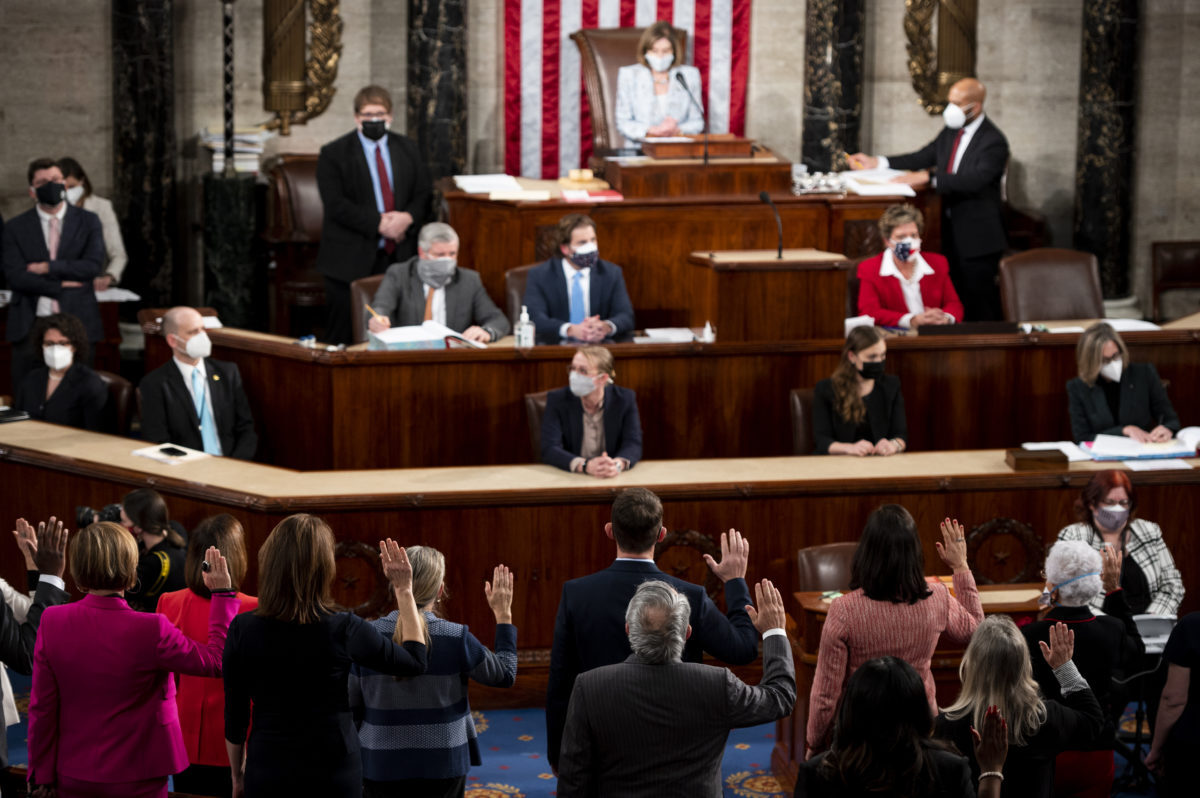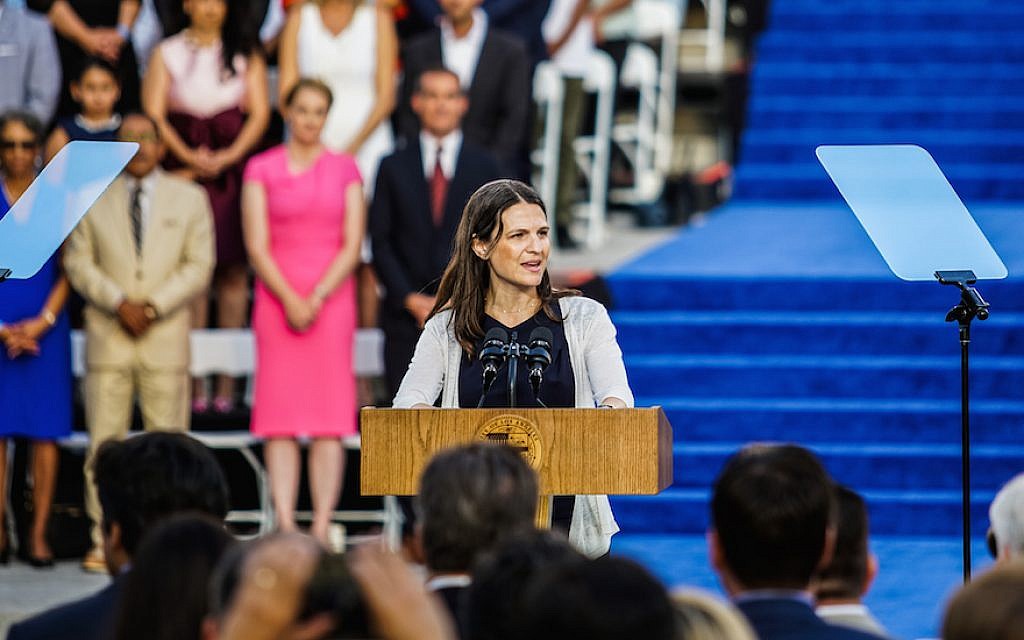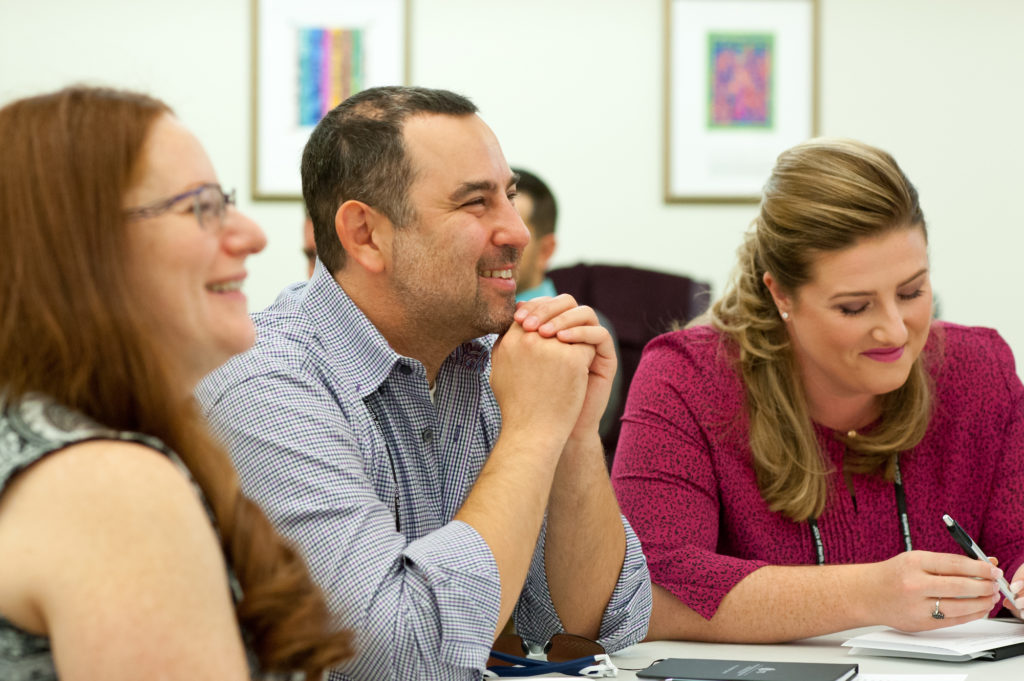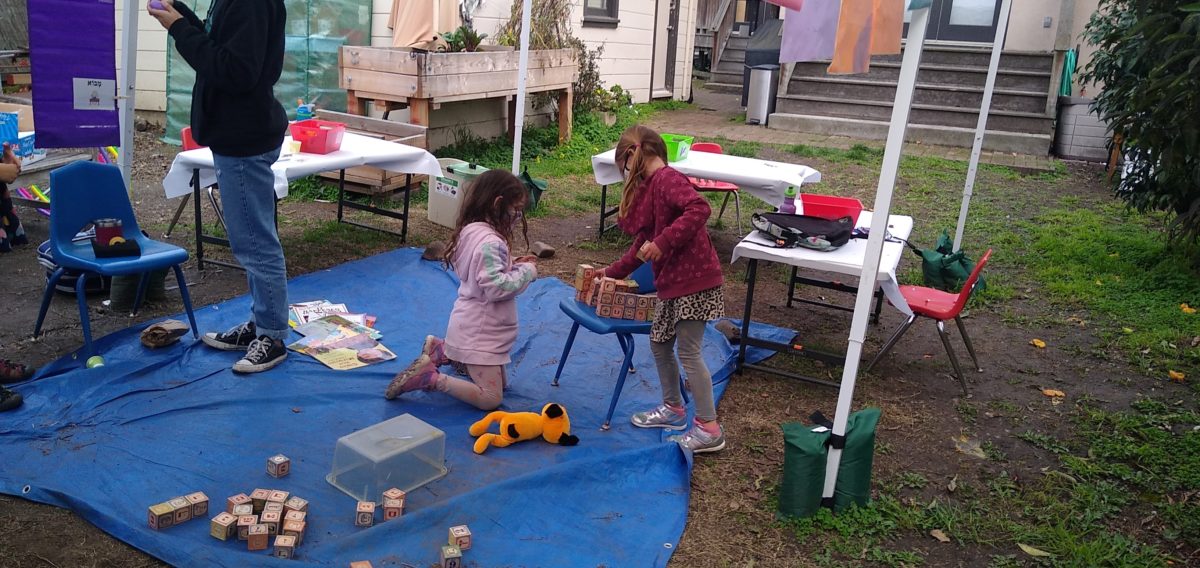Your Daily Phil: Reactions to the JCRIF grants + 11 Jewish infertility groups gather together
Good Tuesday morning!
A group of philanthropies that has helped sustain American Jewry during the pandemic announced yesterday that they are offering grants of up to $10 million to fund big ideas that will reimagine post-pandemic Jewish life in the “Reset Grant” program under the auspices of the Jewish Community Response and Impact Fund (JCRIF).
On Clubhouse last night, a number of the JCRIF funders convened a conversation about the announcement and welcomed ideas and comments from a range of Jewish communal professionals for nearly two hours. Others shared their thoughts with eJP over the course of the day.
Professors Jonathan Sarna of Brandeis University and Steven Windmueller of Hebrew Union College offered historical perspective. Foundations have long been characterized by a thirst for innovation and ambition, said Sarna, citing the foundation that published Rabbi Mordechai Kaplan’s Judaism as a Civilization as an early example, and Birthright as a more recent one.
“If in the nineteenth century, we were a people in search of a community, then in 2021, maybe we are a community in search of its people,” Windmueller said, equating this moment with era that saw the creation of major American Jewish institutions, such as the federation system, that live today.
Rabbi Elan Babchuck, director of innovation at Clal, a think tank focused on the future of faith, called the Reset Grants immensely significant because of the vision behind it. He gave the founders credit for offering “patient capital” — the grants can be paid out over up to five years.
Cindy Greenberg, CEO of Repair the World, said JCRIF had helped her organization in the early days of the pandemic, and has a strong track record of encouraging smart growth in its grantees. With the fund’s help, she and colleagues formed the 40-member Jewish Service Alliance, which created a service corps, partnerships with bigger organizations and four service campaigns per year.
Erika B. Rudin-Luria, president of the Jewish Federation of Cleveland, sounded a similar note: “The past year has reminded all of us in the nonprofit world of what’s possible when we work together,” she said.
AT THE TABLE
11 Jewish groups gathered for the first time to destigmatize infertility


Screenshot
When Branny Rosen started her Jewish infertility support organization “ATime” nearly 30 years ago, only one religious newspaper — Der Yid, which publishes in Yiddish — would sell her ad space. The taboo against discussing the issue was so strong that no one else would publish her advertisement.
Pain and power: Until recently, Jewish women outside the Orthodox world also felt isolated and silenced, said Amy Klein, who wrote a New York Times column about her efforts to have a child, and then a self-help book, The Trying Game, for other women struggling to get pregnant. But both Klein and Rosen, whose group was one of the first of its kind, say the situation has changed. Both pointed to Monday night’s “First Annual Jewish Fertility Summit,” a 90-minute Zoom event that was also carried on YouTube. Several Jewish infertility activists spoke with eJewishPhilanthropy’s Helen Chernikoff about the origins of the event, and their dreams for the future.
Facts and feelings: The brainchild of SVIVAH and I Was Supposed to Have a Baby, the event featured a panel of representatives from 11 fertility organizations, in addition to those doing related work, such as the women’s advocacy group Hadassah. Almost 2,000 people attended, said Dr. Aimee Baron, founder of I Was Supposed to Have a Baby, whose mission is to provide emotional support and information to women by using social media. “Tonight is as real as it gets,” said Ariele Mortkowitz, founder of SVIVAH, as she started the evening. “Aimee and I don’t know how to do it any other way.”
By the numbers
Inside JFNA’s lobbying efforts on the COVID-19 relief bill


Bill Clark/Pool via AP
When he spoke to Jewish Insider’s Marc Rod late Monday morning, Jewish Federations of North America lobbyist Steven Woolf was fresh off a call with staffers working for Sen. Maggie Hassan (D-NH) — having been on similar calls since 7:30 a.m. Woolf’s work, alongside other JFNA lobbyists, is part of a scramble to make tweaks to the latest COVID-19 relief bill as it races through Congress ahead of the March 14 expiration of federal unemployment insurance benefits.
On the agenda: The JFNA lobbyist said one of the organization’s top priorities is lobbying senators for further increases in unemployment insurance reimbursement programs for self-insured nonprofits. The current bill includes 75% reimbursement — up from 50% previously — but JFNA and other nonprofits would like to see that pushed up to 100%. In the interest of expediting the bill, the Senate is skipping the standard committee markup process. “That’s why we’re spending a lot of our lobbying time right now talking to senators because, for example, getting a change in the self-insured unemployment [is not likely] on the House side, because the bill’s pretty much cooked,” Woolf explained. “I think there will be some minor changes in the bill that the Senate will pass sometime next week.”
Off the table: Two other provisions JFNA supports — an expansion and an extension of universal charitable tax deductions and an increase in federal Medicaid reimbursements to states, known as FMAP — appear unlikely to make it into the bill, due to the high price tags associated with them. “We hope that something can be done for the end of this year, at least,” on charitable tax deductions, Woolf said. “We’re asking that senators keep that in mind, but we’re pretty much realistically acknowledging that that’s not going to be in this bill. But that’s a fight we’re going to fight toward the end of 2021 to ensure that it’s increased and extended to 2022 and beyond.”
op-ed
IKAR from Afar


Courtesy IKAR
Like all organizations and synagogues, Los Angeles’ IKAR needed to pivot when the pandemic hit. Congregants Sherri W. Morr & Zvi Zobin share their experiences in an opinion piece in eJP.
Gone virtual: IKAR is thriving. One of the areas that made that happen was “IKAR from Afar.” Suddenly people from all over the United States, the U.K., Brazil and Canada are a part of our IKAR community. Drawn by the High Holy Days, many have stayed with us for Shabbat, for Havdalah and other programs including learning Torah with our clergy. These individuals have become a new chevra for IKAR. With the vaccine and COVID rates decreasing in some cities, we can only hope for an in-person gathering one day soon.
op-ed
Learning from my Students


JTS / Ellen Dubin Photography
As director of the Day School Leadership Training Institute, JTS’s Dr. Ray Levi writes he was invited to teach an asynchronous graduate class in school and nonprofit leadership.
Takeaways: Beyond adapting past practices and learning new platforms, my takeaways – and better still, my surprises, included, among others: online space supported vulnerability and risk-taking, and there are multiple paths to community.
Worthy Reads
Design Thinking: As founder of Trybal Gatherings, which hosts Jewish camp experiences for young adults, Wexner Graduate Fellow Carine Warsawski knew when the pandemic hit that she had to make Zoom fun, she writes on the Wexner Foundation’s website in an essay that shares some of her strategies — including Peloton rides and “llama bombs.” She cites the creators of Disney’s movies as masters of user experience who inspire her. [WexnerFoundation]
Sad Songs: The International Alliance of Theatrical Stage Employees (IATSE) is trying to pressure management at New York’s Metropolitan Opera by asking donors to withhold support until its labor dispute is resolved, reports Jeff Lunden on NPR. The largest performing arts organization in the United States, the Met had to cancel the final months of the 2019-20 season, as well as the entire 2020-21 season, due to the pandemic. The IATSE’s online ad reads: “The Met Opera isn’t about balance sheets. Without people, Without people, the opera is nothing.” [NPR]
Market Volatility: College and university endowments took a double hit in fiscal year 2020, which started July 1, 2019 and ended June 30, 2020, due to higher spending and lower-than-average returns, writes Emma Whitford in Inside Higher Ed. The National Association of College and University Business Officers surveyed 705 institutions, representing $637.7 billion in assets. Returns averaged 1.8%, down from 5.3% the prior year, even 70% of the institution increased the amount they spent out of their endowments. This represents an improvement, however, over the situation last March and April, when the value of endowments had fallen more than 20% due to declines in the stock market. [InsideHigherEd]
Gorgeous Sunset: Philanthropy blogger Vu Le admires the foundations that make a conscious decision to “sunset,” or spend their endowment down at a rate that will eventually empty its coffers and lead to its closure — so much that he thinks the entire sector should have the courage to think about the future the same way, he reflects in his blog, Nonprofit AF. Organizations and even individuals must make good on their stated intention to “work themselves out of a job,” because that job depends on the existence of inequity, and it means everyone in the sector is “personally conflicted.” [NonprofitAF]
Campus Beat: A Tufts University student is alleging that the university failed to protect him from sustained harassment from the campus’ chapter of Students for Justice in Palestine, Melissa Weiss writes in Jewish Insider. “If this could happen to me, someone who’s been very outspoken, and has tried to stand up in the face of antisemitism and bigotry of all forms, it could happen to anybody,” Tufts junior Max Price told JI. “And if this is allowed to continue, if Tufts doesn’t step up, then it will happen to more people. It’s inevitable.” [JewishInsider]
Community Comms
Be featured: Email us to inform the eJP readership of your upcoming event, job opening, or other communication.
Word on the Street
The American Jewish Committee and the National Association of Attorneys General are partnering on an initiative to combat antisemitism in the United States… The Jewish Education Project has announced the 2021 Young Pioneers Award recipients… The Israeli government will be compensating families of ‘missing’ Yeminite children… The USPS plans on placing all first-class mail onto a single delivery track in 2021… The Pennsylvania Gazette has profiled Mike Uram, the university’s departing Hillel executive director…
Pic of the Day


COURTESY STUDIO 70
Studio 70, a Jewish educational hub in Berkeley, hosts an outdoor afterschool program for kindergarteners and first graders “Ba’booah” — in the bubble — in the backyard of one of the families.


SCHUSTERMAN FAMILY PHILANTYHROPIES
Program officer for U.S. Jewish grantmaking in the DC office of Charles and Lynn Schusterman Family Philanthropies, Mary Ann Weiss…
Senior counsel in the Baltimore office of DLA Piper and former president of the Harry and Jeanette Weinberg Foundation, Shale D. Stiller… Former New York City Comptroller for 16 years, Harrison J. Goldin… EVP Emeritus of the Orthodox Union and editor-in-chief of the Koren Talmud Bavli, Rabbi Tzvi Hersh Weinreb… Novelist and public intellectual, winner of a MacArthur Genius Fellowship in 1996, Rebecca Newberger Goldstein… Chairman of Agudath Israel of America and CEO of the sportswear line, OuterStuff, Sol Werdiger… Former president of the Euro-Asian Jewish Congress, Alexander Mashkevitch… Mission director for USAID in the West Bank and Gaza, Monica Stein-Olson… Founder and CEO of Dell Technologies, Michael Dell… Former VP at West End Strategy Team, Joe Berkofsky… Political consultant and pollster, Frank Luntz… Best-selling author of young adult novels, Nova Ren Suma… Actor, comedian and singer, Josh Gad… Financial consultant and organizer for non-profit organizations, Johnathan Morpurgo… Senior account director at Sunshine Sachs, Rebecca Chalif… Bloomberg White House reporter, Jennifer Epstein… Senior front-end web engineer at Business Insider, Reuben A. Ingber… Political reporter for the Texas Tribune in Austin, Patrick Svitek… Director of special projects at Securing America’s Future Energy, Gidon Feen…








